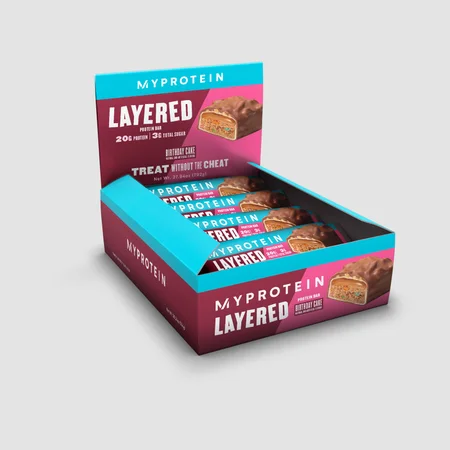
If you were to ask a successful dieter what they felt was their toughest challenge along their weight loss journey they’d almost always say it was “keeping the weight off”.
But why is that?
Surely the diet itself would be the most difficult aspect of weight loss?
Well, it turns out that our body is somewhat wired to always regain some of that weight lost and, for many, this can be so incredibly disheartening that they revert back into their old lifestyles, habits, and behaviors.
In this article we’re going to dive deep into this “wiring”, covering how you actually lose weight, why keeping it off is so difficult, and what you can actually do to succeed in sustaining your results.

How you actually lose weight
Despite what the latest influencer promoted fad, tea, or gummy is spouting, weight loss is not achieved through magic or “the one secret you’ve never heard of”.
In fact, your body is somewhat straightforward (but ultimately hugely complex at the same time).
You see, we’re sort of like a machine. An organic machine that grows and shrinks dependent on how much fuel you put in it.
So no, when you gain a pound overnight the chances are virtually zero that you’ve gained a pound of solid fat (and even fat isn’t all fat, it’s water and other stored nutrients too).
Most of the time you just need to go to the toilet. Do you really want to let the entirety of your self-worth and happiness be dictated by when you last did a number 2? Didn’t think so.
Now, this information is more important for later on when we talk about weight regain, but how do we actually lose body fat then?
Very simply, you take in less than what you’re expending. The epitome of easier said than done.
What you take in is often more transparent and easier to distinguish (thanks to calorie tracking) than what we expend which is comprised of:
Basal metabolic rate — how much energy we need to sustain ourselves at complete rest. Exercise activity — how much energy we expend doing intended exercise Non-exercise activity thermogenesis (NEAT) — how much energy we expend doing actions not intended as exercise but still have an energetic requirement (for example, fidgeting). The thermic effect of food — the amount of energy it costs to actually use the food we consume (for example, protein requires roughly 1 kilocalorie (kcal) per gram to metabolize meaning you essentially get a 25% kcal discount on it giving 1 gram of protein is equivalent to 4 kcals).
Our total daily energy expenditure (TDEE) is highly variable and very difficult to interpret much of the time.
NEAT appears to be one of the greatest factors in this variability and may explain why some people do not achieve and or sustain the weight loss they believe they should, based on their calculations.1
In fact, researchers have found that NEAT can vary up to and above 1000kcals per day! Generally speaking, it’s good advice to suggest keeping active throughout the day can ensure your NEAT is in line with your goals but, perhaps, it may be easier for some to incorporate a step counter so you can keep a better track of it.
Sustainable weight loss takes time
Regardless, to achieve weight loss (in relation to loss of fat) you must sustain a calorie deficit (that is taking less energy in through food than that we expend) for an extended period of time. The more aggressive the deficit the less time you may need to be in it and vice versa.
It's worth considering that the more aggressive a deficit is, the more difficult it, and other aspects of your health (such as performance, sleep, sexual function etc.), become to maintain.
When you introduce a highly restrictive diet (such as any of the many unnecessary yet popular fads out there) you’ll lose a lot of water, stored nutrients and food waste weight initially. So, that stone you shifted in a week? Yeah, not all fat. In fact, not even close. And we’ll talk about how these significant shifts in weight can actually be detrimental to success as well.
Speaking of, why is it so damn difficult to keep off the weight we’ve lost?
Why sustaining weight loss is difficult
The difficulty and or failure of sustaining successful weight loss can be down to one or more of the following four points:
Our physiology Non-tangible mass change The dietary approach you employ Our environment
Our physiology
Understanding how you work when it comes to changing your body is important. It can help you rationalize and anticipate the time which follows a weight loss phase in your life.
Being able to do this will help you to understand that some degree of weight regain is to be expected, but that doesn’t necessarily mean it’s fat. You have to do your best to protect your mental health so as not to fall back into the same (if not worse) lifestyle behaviors which led you to wanting to lose weight in the first place.
Think of it like a thermostat — when it gets too hot or too cold it readjusts back to a comfortably heated environment.
Your body is much the same; if you lose too much, or gain too much, your body has mechanisms in place to counteract this and get you back to a weight range (thought to be influenced by genetics) which you can best thrive in.
These homeostatic mechanisms include hormonal changes, how you use nutrients, the amount of heat you produce, the amount of activity you perform and more.

Broken thermostat?
There are instances when the thermostat can get “broken” however. One example would be if someone became severely obese. Whilst some people are more prone than others to excessive body fat gain (again, tied to our genetics) the real defining factor in whether they develop severe obesity is really down to their local environment (which we’ll touch on in a bit).
So yes, your body does “fight back” to a certain degree when you lose weight, but it’s only really to readjust to find a weight range it would thrive in. That doesn’t necessarily mean you’ll regain all the weight you’ve lost, but it does make it more challenging to maintain the majority of your progress.
Not all doom and gloom here though ladies and gents!
That slight rebound in weight may, again, not be related to fat and, even if it were, you’d still be at a significantly lower body fat percentage than when you began this process and may be performing at or around the same level of performance.
Wouldn’t you take that in a heartbeat?
Non-tangible mass change
One of the most disheartening outcomes for extremely restrictive dieters is the amount of immediate weight regain that follows once they’re “off the wagon”.
Why does this happen?
Well, a great deal of weight that’s lost with any extremely restrictive diet (most popular being a low carb approach) is not actual tangible body mass. Rather, it’s freely changing elements within the body that contribute to our scale weight — food waste, glycogen (stored carbohydrate), body water and food in transit.
An extremely restrictive diet does little but make life miserable, make you dislike yourself, encourages disordered eating, and creates a “mirage” of weight loss which disappears almost immediately once you’ve given up on that unsustainable way of eating.
Our dietary approach
Adding to the misleading weight loss attached to extremely restrictive fad diets, you also have to factor in how very few of them promote sustainable behavior development. 3
Your habits and behaviours around food are critically important for your long-term success. What’s the famous saying? “You are what you do most of the time”. So, if you restrict for several days a week before diving into a weeklong deprivation driven binge what do you believe the outcome will be?
Successful sustainable weight loss, or possibly some weight gain and certainly feeling worse about yourself? Let me save you the guess work, it’s the latter.
Muscle is the most metabolically active tissue and requires the most energy to fuel. Meaning, quite simply, the more muscle you have the greater your energy expenditure will be.
When you lose a lot of muscle on a restrictive diet and then begin to overeat because you’ve been so deprived then you’re looking at a really skewed energy balance — energy output is way down and energy intake is way up.
What happens then? An increase in body fat and weight.
Moral of the story? Fad diets suck.
We’ll discuss some of the traits of successful and sustainable weight management once we cover the last point.

Your local environment
I’m sure this will be a shock to absolutely no one but your current environment i.e. the world you live in, is not conducive to maintaining a “healthy” weight range.4
We move too little, we work too much, we have widely accessible processed, energy dense foods available and we’re continually bombarded with marketing to eat said foods.
I wish I had something a little cheerier to say about this but, truth be told, our environment really does suck when it comes to managing our weight.
Here’s the thing though — you can’t necessarily control what life throws at you, or where you're born. However, you do have the ability to determine the choices which you make.
Have the pizza of course, but don’t be having it for breakfast, lunch and dinner — that’s simply common sense.
If your goal is to maintain a certain weight and you’re eating out, then do your homework beforehand. Check the menus — have a few options in mind and then you’re able to focus more on the experience in that moment.
The world is how it is and no amount of complaining is going to fix it unfortunately. The fast-food brands are here to stay and they can be a great addition to an overall healthy lifestyle if
Remember, all food is good food when we incorporate it the right way.
How to achieve sustained long term weight management
“You’re going to say it’s impossible aren’t you Jamie?”
Actually, no. In fact, you’ll be somewhat reassured to know that I was a victim of stupid fad diets for many years but, over time and through educating myself, have successfully managed to lose and maintain almost 8 stone of weight loss.
I’m a huge fan of showing people how they
A 2018 paper dove into around 70 odd papers before the researchers were confident enough to lay out what they discovered were the keys to successful and sustained weight loss.5
Portion control A reduction in total food energy intake A higher dietary protein intake A lower dietary fat intake (not to say dietary fat is “bad” but it is the densest of the macronutrient groups lauding in at around 9kcals per gram) An increase in plant-based foods (fruit and vegetable intake) Less calories consumed from sugar-sweetened beverages An inclusive rather than exclusive approach to food choice
I’d also like to highlight some findings which I found to be extremely interesting (I’m a geek, sue me) but actually debunk some of the deep seeded beliefs individuals may have around weight loss.
They found that social eating (i.e. going to restaurants) didn’t impact weight regain. They also discovered that external factors for weight loss were less predictive to long term success.
Meaning, quite simply, if you’re not going through this process for yourself, it’s less likely to be successful. Many people diet because they feel they’re unattractive, unworthy of love, or simply not good enough.
Take home message
Are we rewired to gain back any and all weight that we lose? Somewhat, but not completely.
Successful and sustained weight loss is not about a “sexy new miracle diet” — it’s about finding what works for you.
I know that’s as cliché as it comes but it’s true. No one knows you, your body, and your lifestyle better than you. Finding the methods of dieting, training, stress management, sleeping etc. that best fit you is important.
READ THIS NEXT:

1. von Loeffelholz, C., & Birkenfeld, A. (2018). The role of non-exercise activity thermogenesis in human obesity. Endotext [Internet].
2. Müller, M. J., Geisler, C., Heymsfield, S. B., & Bosy-Westphal, A. (2018). Recent advances in understanding body weight homeostasis in humans. F1000Research, 7.
3. British Dietetic Association. Fad Diets: Food Facts Sheet.
4. Tyrrell, J., Wood, A. R., Ames, R. M., Yaghootkar, H., Beaumont, R. N., Jones, S. E., … & Frayling, T. M. (2017). Gene–obesogenic environment interactions in the UK Biobank study. International journal of epidemiology, 46(2), 559-575.
5. Varkevisser, R. D. M., van Stralen, M. M., Kroeze, W., Ket, J. C. F., & Steenhuis, I. H. M. (2019). Determinants of weight loss maintenance: a systematic review. Obesity reviews, 20(2), 171-211.









